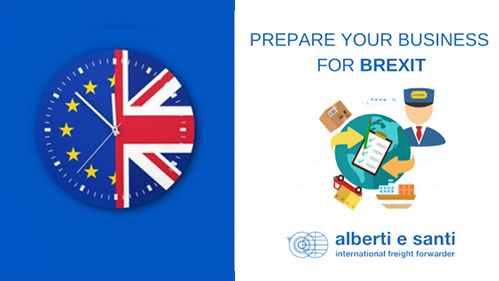BREXIT – The United Kingdom formally leaves the European Union
As of 31 January 2020 (23:00 UK time), the United Kingdom has left the European Union. In the following text please provide some facts and information about BREXIT. (https://www.gov.uk/brexit)
Regarding BREXIT the facts are as follows:
- The United Kingdom (Great Britain and Northern Ireland) will leave the European Union (EU 28) on 31 January 2020 at 23:00 UK time, midnight European time.
- However, for a period of exactly 11 months to the minute, there will be a TRANSITORY period as provided for in “Article 50 of the Lisbon Treaty” which will allow both parties, namely the UK and the EU27 Member States, to formally unravel various “technical knots” in the current EU28 fabric.
- The transitional period could have been extended for a further two years, but was ruled out by the law passed on Friday 20 December 2019 by the UK Parliament.
- Therefore, the UK will cease to be legally, physically and/or technically part of the European Union from 31 December 2020 at 11pm.
- During the Transitional Period, the UK will no longer be bound by European law and will not be part of any new European legislation and will technically be OUT OF THE EUROPEAN CUSTOMS UNION, the Transitional Period will allow the exchange of goods from EU27 states into the UK and vice versa WITHOUT the NEED to undergo customs clearance formalities at the point of entry into or out of the UK
- From 31 January 2020 at 23:00 until 31 December 2020 at 23:00 our physical and technical “MODUS OPERANDI” (i.e. operational service) will continue as it has worked to date. Customs procedures will be introduced ONLY from 1 January 2021.
- This “modus operandi” will continue for all 11 months of 2020 after the BREXIT date of 31 January 2020.
- From 1 January 2021 goods travelling in or out of the UK to or from Europe will be subject to customs clearance formalities In these 11 months (in 2020) it will be up to the UK Government to find a bilateral trade agreement with the remaining EU27 Member States.
- From 1 January 2021, goods travelling in or out of the UK to or from Europe will be subject to customs clearance formalities
In these 11 months (in 2020) it will be up to the UK government to find a bilateral trade agreement with the remaining EU27 member states.
If an agreement is found and implemented by 31/12/2020 during the transition period, we will formally have a BREXIT with an agreement and therefore no duties/taxes will be levied on most products entering the UK from the EU27 countries from 1 January 2021 and vice versa.
If an Agreement is NOT found and therefore NOT put in place by 31/12/2020 during the Transition period, we will formally have a BREXIT WITHOUT an Agreement. In this case the WTO GATT tariffs between the two trading blocs will most likely apply.
The above trade consideration will have no technical or operational effect on the entry or exit of goods from the UK from 1 January 2021, except for importers into the UK who may be subject to duties and taxes on the import of goods.
During 2019, the UK had the option to leave the EU28 without a deal which would have led to the impossibility of the implementation of the ‘transition’ period; to avoid this we have seen the adoption of several emergency interim measures (such as TSPs and other similar procedures) to and cope with a ‘hard Brexit’ should this occur.
However, we reiterate that from 31 January 2020 at 23:00 until 31 December 2020 at 23:00 our physical and technical “MODUS OPERANDI” will continue as it has done to date. Customs procedures will be introduced ONLY from 1 January 2021.
Sources:
https://www.gov.uk/brexit
https://www.bbc.com/news/uk-politics-50125338
Al 31 gennaio 2020 (alle 23:00 ora del Regno Unito) il Regno Unito ha lasciato l’Unione europea. Nel testo seguente si prega di mettere a punto alcuni fatti e informazioni su BREXIT. (https://www.gov.uk/brexit)
Per quanto riguarda BREXIT i fatti sono i seguenti:
- Il Regno Unito (Gran Bretagna e Irlanda del Nord) lascierà l’Unione Europea (UE 28) il 31 gennaio 2020 alle 23:00 ora del Regno Unito, mezzanotte all’ora europea.
- Tuttavia, per un periodo di esattamente 11 mesi al minuto, ci sarà un periodo TRANSITORIO come previsto dall ‘”articolo 50 del trattato di Lisbona” che consentirà ad entrambe le parti, vale a dire il Regno Unito e gli Stati membri dell’UE27, di sciogliere formalmente vari “nodi tecnici” nell’attuale tessuto UE 28.
- Il periodo di transizione avrebbe potuto essere prorogato di altri due anni, ma è stato escluso dalla legge approvata venerdì 20 dicembre 2019 dal Parlamento britannico.
- Pertanto, il Regno Unito cesserà di essere legalmente, fisicamente e / o tecnicamente parte dell’Unione Europea a partire dal 31 dicembre 2020 alle 23.00.
- Durante il periodo transitorio il Regno Unito non sarà più vincolato dalla legge europea e non farà parte di alcuna nuova legislazione europea e sarà tecnicamente FUORI DALL’UNIONE DOGANALE EUROPEA, tuttavia per la durata dello stesso, il Periodo Transitorio consentirà lo scambio delle merci dagli stati dell’UE27 nel Regno Unito e viceversa SENZA NECESSITÀ di sottoporsi a formalità di sdoganamento al punto di entrata nel Regno Unito o fuori dal Regno Unito
- Dal 31 gennaio 2020 alle 23:00 fino al 31 dicembre 2020 alle 23:00 il nostro “MODUS OPERANDI” fisico e tecnico (ovvero il servizio operativo) continuerà come ha funzionato fino ad oggi. Le procedure doganali saranno introdotte SOLO dal 1 ° gennaio 2021
- Questo “modus operandi” continuerà per tutti gli 11 mesi del 2020 successivi alla data BREXIT del 31 gennaio 2020.
- Dal 1 ° gennaio 2021 le merci che viaggiano nel Regno Unito o fuori dal Regno Unito da o verso l’Europa saranno soggette alle formalità di sdoganamento In questi 11 mesi (nel 2020) spetterà al governo del Regno Unito trovare un accordo commerciale bilaterale con i restanti Stati membri dell’UE27.
- Dal 1 ° gennaio 2021 le merci che viaggiano nel Regno Unito o fuori dal Regno Unito da o verso l’Europa saranno soggette alle formalità di sdoganamento
In questi 11 mesi (nel 2020) spetterà al governo del Regno Unito trovare un accordo bilaterale commerciale con i restanti Stati membri dell’UE27.
Se sarà trovato un accordo ed sarà messo in atto entro il 31/12/2020 durante il periodo di transizione, avremo formalmente una BREXIT con un accordo e quindi non saranno riscossi dazi / tasse per la maggior parte dei prodotti che entrano nel Regno Unito dall’UE 27 paesi dal 1 ° gennaio 2021 e viceversa.
Se NON verrà trovato un Accordo e quindi NON verrà messo in atto entro il 31/12/2020 durante il periodo di Transizione, avremo formalmente un BREXIT SENZA un Accordo. In questo caso molto probabilmente si applicheranno le tariffe GATT dell’OMC tra i due blocchi commerciali.
Il suddetto corrispettivo commerciale non avrà alcun effetto tecnico o operativo sull’entrata o l’uscita delle merci dal Regno Unito a partire dal 1 ° gennaio 2021, se non per gli importatori nel Regno Unito che potrebbero essere soggetti a dazi e tasse sull’importazione di merci.
Nel corso del 2019 il Regno Unito ha avuto la possibilità di uscire dall’UE28 senza un accordo che avrebbe portato alla impossibilità dell’attuazione del periodo “transitorio”; per evitare ciò abbiamo assistito all’adozione di diverse misure provvisorie di emergenza (come TSP e altre procedure simili) per e far fronte a una “Brexit dura” qualora ciò si fosse verificato.
Tuttavia, ripetiamo che dal 31 gennaio 2020 alle 23:00 fino al 31 dicembre 2020 alle 23:00 il nostro “MODUS OPERANDI” fisico e tecnico continuerà come è successo fino ad oggi. Le procedure doganali saranno introdotte SOLO dal 1 ° gennaio 2021
Fonti:

